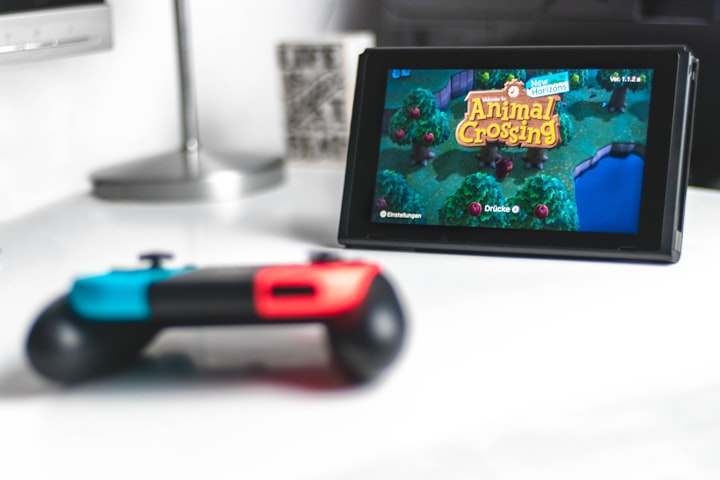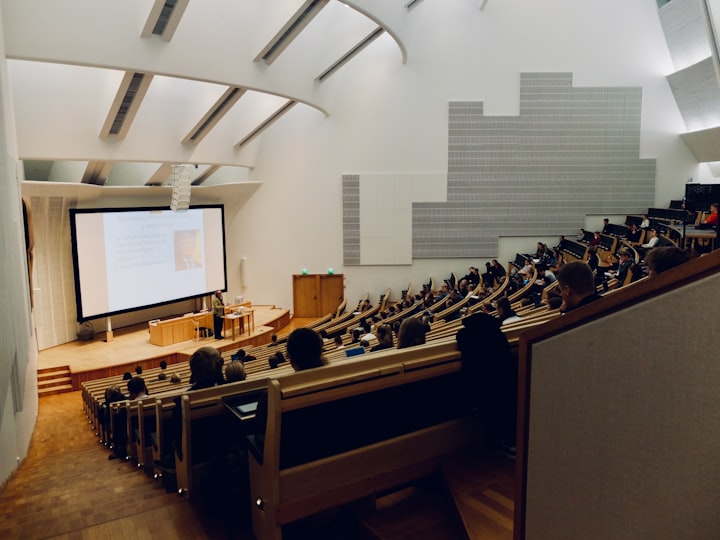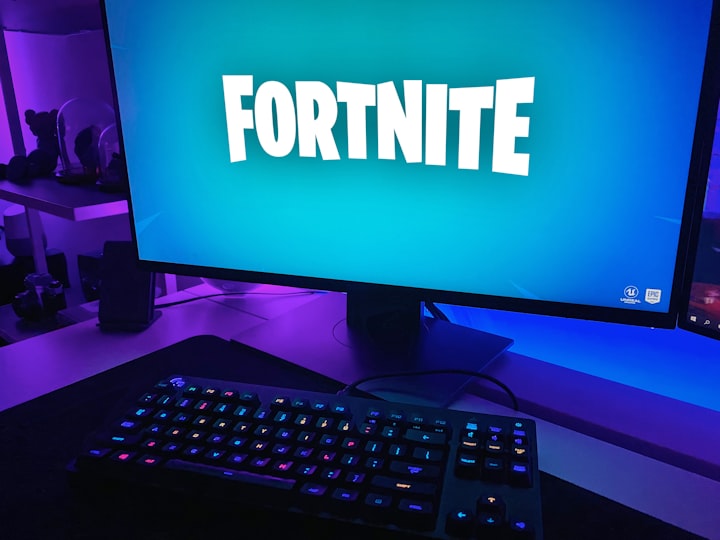5 Things I Learned About Money from Animal Crossing
From debt to risk to scarcity, this game definitely imitates real-world economics - here's how.

If you aren't already aware of the wildly popular Animal Crossing: New Horizons, then you must not have been quarantined with a Nintendo Switch. It dropped right as the reality of quarantine was starting to feel real and endless - right when many of us realized we would be spending our spring and even summer indoors, waiting out the pandemic. For me, virtual island life became an escape from the monotony of life in my apartment, and the drudgery of working on my master's degree on top of working from home - a trifecta if ever I've seen one.
My experience was colored by the graduate-level class in Microeconomics I'd been taking at around the time I started out on my AC:NH island; so many of the concepts apply very directly to the Cherry Republic I love so much. While some of the lessons were more personal, a lot of the mechanics in the game are textbook examples of what I was learning about the way real-world economies work.
Without further ado, here are 10 things I learned about money from Animal Crossing.
1. Risk can payoff, but only if you do the work
The most obvious example of economics at play is, of course, the Stalk Market. You buy turnips on Sunday, and sell them to the Nook Brothers sometime during the week. The price they'll pay is different every morning and afternoon - so you have to be consistent in checking.
Not to mention, at some point, you have to pull the trigger and sell them back. There's always a chance a better price will crop up the next day, but as long as you're at least making back what you paid, the certainty is often worth it.
What I learned very quickly was that I am a risk-averse person. Although I have aggressive retirement portfolios, the rest of my financial life is built on garanteed ROI and things I can control.
Given the low value I place on digital in-game currancy, I did have a lot of fun with the turnip trade in my early days. I was able to build Bell wealth quickly, and rarely lost money when I actually managed to check on prices twice per day, all week long. Granted, this game is probably rigged on average to benefit the player, unlike the real-world markets, and the time you need to wait for an investment to payoff is much longer than the week-long lifespan of turnips.
Even so, it was remarkable how much difference it made to gain money on what I'd already worked for. The multiplier effect of money earning money is crazy important if you want out of the rat-race of exchanging time for money in the real world, and a little bit of risk is necessary no matter how you feel about it.
2. Debt doesn't mean you can't love your life
When I graduated college in 2017, I was desperate to climb out from under a mountain of student loans. This is probably something many millenials and Gen Z-ers are familliar with; you graduate, get an entry level job, pay bills and student loans, have nothing left over. That cycle made me feel like I absolutely couldn't go out to eat, make plans with my firends, or buy nice things. While that was mostly true - I genuinely could not afford it - what I really had to do was set boundaries. There are tons of things you can do without spending money - all I had to do was say, "Hey there's not much room in my budget for this, but we can hang out somewhere else on another day."
No one has ever made me feel bad about it. No one has ever insisted that I go anyway and suck it up. That might not be the case for everyone, but I was lucky enough to have friends who understood even when they were in a different stage of life.
What does this have to do with Animal Crossing? This is a loose connection but hang with me!
The idyllic life of the villagers was so refreshing. I'd often find someone sitting by the river, daydreaming. Or doing yoga on the beach. Or singing out in front of the town square. Drinking tea in their cute little homes, fireplace on, a book on the table.
Life on the island was slow and peaceful. There are a million things you can do without spending a dime, but still all anyone ever wants to do is go out for a $10 drink or $50 dinner. Especially given pandemic restrictions, AC:NH was a great reminder that there is so much more to life than the things that cost money - and that spending time outdoors is great for my overall wellbeing.
3. Scarcity creates ridiculous returns when done right
This one was kind of a wild ride and I only learned about it recently; first, let's talk about scarcity from an economic perspective.
The rule goes like this - when demand is high and quantity is low (scarce), the price of an item is high. In reverse, when there's low demand and quantity is high, the price for an item is low. As demand and quantity fluctuate, so does the price.
This doesn't translate in-game much, but there are some good examples. The native fruit on your island is worth much less than fruits you "import" from your travels elsewhere. There are rare fish and bugs that are worth much more than the common butterfly.
In the game, supply is mostly constant (albeit seasonal) so if you want a particular item - furniture, a villager, or even clothing - you just have to keep checking the shops every day until you find it. At least, that's how game makers intended for it to be - but here's where this gets wild:
A website popped up that changes the way supply/demand works here. Nookazon is a real-world website where AC:NH players can exchange large amounts of Bells for in-game items. If you have something that someone wants, you can ask for much more than what the game usually sells it for - I'm talking 25x to 100x the real price. It's crazy, but the only way to get items you haven't yet found is to trade with another player - and if you don't have a bunch of friends using the game, you'll just have to convince a stranger to trade with you.
4. Timing is everything when it comes to maximizing your returns
Convenience is one of those things that always costs you, but not always in obvious ways.
For the most part, the math of money in the game is straightforward. Materials are worth a certain price - some more than others, but all reasonably low. Furniture made with those materials is worth double the cost of materials when sold to the local shop on an average day.
There are ways to get more than that, though, if you're paying attention to demand. The local shop will name a couple of hot items that they'll pay double for daily; that means your item sells for four times the cost of materials - in terms of profit margins, that's pretty stellar.
Also, some people will pay much more for items they are interested in - Flick and C.J., for example, will give you 50% more than the Nook Brothers for bugs and fish respectively. Why? Bugs and fish are their thing, and they value it more.
One that I didn't realize for a long time is that if you're playing at night, after the shop has closed, you can conveniently drop the items you want to sell in a collection box. This sounds great, but you'll only get 80% of the usual price for your items. When you're trading you your time fishing or catching bugs, this can mean 20% more work in the long run - so it's likely worth a little more time putting items in storage for the next day.
In real life, this shows up in instant transfer fees, fast food prices, meal subscriptions, and so many other little ways. All of these things make your life a little easier, and that may be of value to you. Just know that you're paying for it in cash, and although the margins may seem small at the time, they add up quickly over a lifetime.
5. There are more important things than getting a bigger house
Animal Crossing debt is largely centered around mortgages - every time you add a room, the mortgage grows a bit larger than the last, until suddenly you're on the hook for several million bells.
I remember speeding through these upgrades, always jumping immediately into the next thing without considering other priorities, or even whether I really needed more space or not.
This is an easy trap to fall into in real life, too. Things like homeownership and new cars are often considered a necessity, especially if you plan to have kids. What I've found is that the fewer "normal" things you own, the quicker you get to the things you want - normal or not.
For me, this meant having roommates up until I got married rather than getting an apartment on my own. We'll be a one-car family when our 2010 van dies so that we can save on insurance and car payments until we fully own our home. There are a million little things, too, and they all add up to a life I feel like I've chosen, rather than a life I've just fallen into while keeping up with the Joneses.
----
If you've played Animal Crossing: New Horizons, what have you taken away from it? Not all the lessons wrapped up in this simple game are financial, and I know it had a huge impact on a lot of people stuck in quarantine - myself included.






Comments
There are no comments for this story
Be the first to respond and start the conversation.